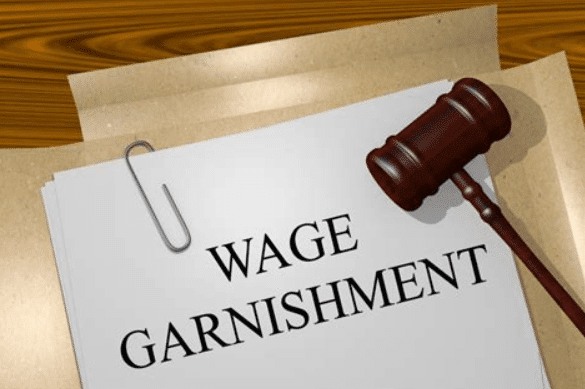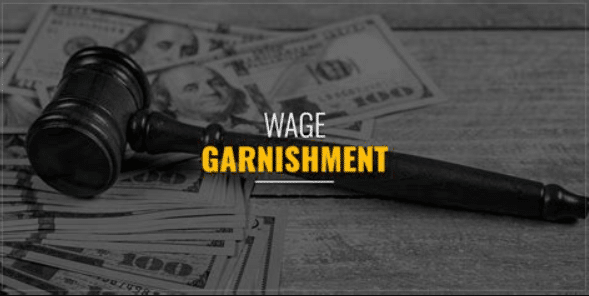If you and your wife reside in a community property state, then there is a legitimate risk that a creditor will garnish wages from a joint bank account to pay a debt that only you owe. In general, your spouse’s wages cannot be garnished for a debt you owe if they have a separate checking account held solely in their name. You can prevent wage garnishment by fighting off debt collectors in court with ZumaZip.
If a creditor files a debt collection lawsuit and obtains a judgment against you, the creditor may attempt to retrieve repayment for the outstanding debt by garnishing your wages and/or seizing funds in your checking account. A common question asked by individuals who find themselves in this situation is: “Can a creditor access my wife’s bank account to retrieve funds to pay for my debt?” The answer is… it depends.
The ability to garnish an account depends on multiple factors
The ability of a creditor, or debt collector, to garnish your spouse’s bank account depends on multiple factors, including the type of account your spouse uses, the nature of the debt, and the state in which you and your spouse reside.
As a general rule, if your spouse has a separate checking account held solely in their name, then a creditor who obtains a judgment against you cannot get a garnishment order to access your spouse’s account. However, the answer is different if you and your spouse have funds in a joint checking account.
If you have a joint checking account with your spouse, the ability of a creditor to access that account to satisfy a debt collection judgment depends primarily on whether you and your spouse reside in a common law state or community property state. Let’s take a look at each.
Protect your assets by filing a response to debt collection lawsuits with ZumaZip.
Community property states allow wage garnishment of joint bank accounts
If you and your wife reside in a community property state, then there is a legitimate risk that a creditor will be able to access a joint bank account to garnish funds to pay a debt only you owe. This is because community property states have laws on the books that treat the property of one spouse in a marriage as the property of the other spouse.
For example, Texas Family Code Sec. 3.202(c)(d) states:
“(c) The community property subject to a spouse’s sole or joint management, control, and disposition is subject to the liabilities incurred by the spouse before or during marriage.
(d) All community property is subject to tortious liability of either spouse incurred during marriage.”
In other words, any property that was accumulated during a marriage may be subject to wage garnishment or other liabilities as a result of only one of the spouse’s debts.
Fortunately, most states do not adhere to community property laws. There are currently only nine community property states in America:
- Arizona
- California
- Idaho
- Louisiana
- Nevada
- New Mexico
- Texas
- Washington
Let’s consider an example.
Example: Jeff and Suzie live in Arizona, and when Jeff gets sued by LVNV Funding for a debt he owes, he fails to respond before the state deadline. As a result, the court orders a default judgment against him. LVNV Funding is able to access Jeff and Suzie’s join bank account and garnish their wages, including Suzie’s hard-earned cash. This all could have been avoided if Jeff had used ZumaZip to respond to the lawsuit and fight back in court.
Protect your wife’s assets from a garnishment
If you reside in a community property state, there are steps you can take to protect your wife and her funds from a garnishment effort sought by your creditors. Specifically, you should maintain separate, independent bank accounts instead of having all your funds in a joint bank account.
Though, it is important to note simply maintaining funds in separate accounts is not a foolproof method to protect your wife’s funds. This is because, in many community property states, there are laws on the books that enable a creditor to enforce a judgment by accessing a spouse’s bank account since the debt was incurred when you were married and, as a result, the funds in your wife’s account are deemed “community debts.”
Respond to debt collectors in 15 minutes with ZumaZip.
Common law property states may protect your spouse from wage garnishment
In contrast to community property states, individuals who reside in common law property states enjoy greater protections from creditor garnishments for funds maintained in a joint bank account. In a common law property state, the general rule is that the debt of each spouse remains their separate responsibility.
However, this general rule is subject to two important exceptions. First, if the debt benefited both spouses, then it may be possible for the creditor to garnish funds maintained in a joint account. Second, if both spouses took out the debt jointly and a judgment was subsequently obtained by a creditor, it exposes the joint account to garnishment.
There are specific funds protected from wage garnishment
It is important to note that even if a creditor secures a garnishment order and has frozen your joint bank account, some funds are protected and cannot be garnished. For example, any funds deposited into the account that are federal benefits (e.g., Social Security disability benefits, Supplemental Security Income, or federal retirement benefits) cannot be garnished by a creditor.
As a general rule, if your wife has a separate bank account held solely in their name, then a creditor cannot access that account to garnish funds to pay for your debt. However, if you and your wife have a joint bank account, there is a risk that a creditor could garnish funds in the joint account, even if a judgment is only entered against you.
Nevertheless, the ability of a creditor to garnish a joint bank account will be impacted by the state in which you reside and the funds maintained in that account.
Avoid wage garnishment
If you’ve been sued for a debt, don’t ignore the lawsuit. You can avoid losing and having your wages garnished by simply responding to the case in court. In order to respond to a debt lawsuit, you must draft and file a written Answer into your case.
Be sure to file your Answer before your state’s deadline, otherwise you run the risk of losing automatically when the court orders a default judgment against you. This type of judgment can lead to wage garnishment and other penalties, so it’s important you take action as soon as you receive notice of the lawsuit.
ZumaZip’s Answer form helps you respond to all the claims against you and present your affirmative defenses, giving you a strong case to fight back against debt collectors in court.
What is ZumaZip?
ZumaZip is a convenient solution designed to streamline your response to a debt collection lawsuit. Here’s a breakdown of what you can expect when you use ZumaZip:
Firstly, you’ll access our user-friendly web application, which guides you through the process step by step. You’ll be prompted to answer a series of questions related to your specific situation. Once you’ve completed the questionnaire, you have the option to either print out the finalized forms and mail them to the appropriate courts yourself, or you can opt to utilize ZumaZip’s services to file them on your behalf. Additionally, if you choose this option, an attorney will review your document for added peace of mind.
If you’re seeking guidance on how to effectively respond to a debt collection lawsuit, ZumaZip can provide the assistance you need. Feel free to explore our FAQs for more information on what ZumaZip has to offer.
What if I haven’t been sued yet?
If you’ve only received a collections notice, but not a lawsuit, the best way to respond is with a Debt Validation Letter. When a debt collector contacts you in any way, whether it’s by phone or mail, you can respond by formally requesting a debt validation with a Debt Validation Letter . This letter notifies the collector that you dispute the debt and forces them to provide proof you owe the debt. They can’t call you or continue collecting until they provide validation of the debt. This flowchart shows how you can use a Debt Validation Letter to win.
Get started with a Debt Validation Letter here.
How to Answer a Summons for debt collection in all 50 states
Here’s a list of guides on how to respond to a debt collection lawsuit in each state:
- Alabama
- Alaska
- Arizona
- Arkansas
- California
- Colorado
- Connecticut
- Delaware
- Florida
- Georgia
- Hawaii
- Idaho
- Illinois
- Indiana
- Iowa
- Kansas
- Kentucky
- Louisiana
- Maine
- Maryland
- Massachusetts
- Michigan
- Minnesota
- Mississippi
- Missouri
- Montana
- Nebraska
- Nevada
- New Hampshire
- New Jersey
- New Mexico
- New York
- North Carolina
- North Dakota
- Ohio
- Oklahoma
- Oregon
- Pennsylvania
- Rhode Island
- South Carolina
- South Dakota
- Tennessee
- Texas
- Utah
- Vermont; Vermont (Small Claims court)
- Virginia
- Washington
- West Virginia
- Wisconsin
- Wyoming
Guides on how to beat every debt collector
Hey there! Facing off against a debt collector can feel like a daunting challenge, but fear not! We’re here to help you navigate through it all with our handy guides designed to assist you in beating every debt collector you encounter. Whether you’re facing a new lawsuit or dealing with a persistent collector, we’ve got your back. Stay positive, stay informed, and let’s tackle this together!
- Absolute Resolutions Investments LLC
- Accredited Collection Services
- Alliance One
- Amcol Clmbia
- American Recovery Service
- Asset Acceptance LLC
- Asset Recovery Solutions
- Associated Credit Services
- Autovest LLC
- Cach LLC
- Cavalry SPV I LLC
- Cerastes LLC
- Colinfobur
- Covington Credit
- Crown Asset Management
- CTC Debt Collector
- Cypress Financial Recoveries
- Delanor Kemper & Associates
- Eagle Loan of Ohio
- Educap
- Estate Information Services
- FIA Card Services
- Forster & Garbus
- Freshview Solutions
- Fulton Friedman & Gullace LLP
- Harvest Credit Management
- Howard Lee Schiff
- Hudson & Keyse LLC
- Integras Capital Recovery LLC
- Javitch Block
- Jefferson Capital Systems LLC
- LVNV Funding
- Mannbracken
- Mariner Finance
- Medicredit
- Michael J Adams PC
- Michael J Scott
- Midland Funding LLC
- Mullooly, Jeffrey, Rooney & Flynn
- Mountain Land Collections
- MRS Associates
- National Collegiate Trust
- Nationstar Foreclosure
- Northstar Capital Acquisition
- NCEP LLC
- NRC Collection Agency
- OneMain Financial
- Palisades Collection LLC
- Pallida LLC
- Paragon Revenue Group
- Pinnacle Collections Agency
- PMAB LLC
- Portfolio Recovery Associates
- Provest Law
- PYOD LLC
- Reunion Student Loan Finance Corporation
- Revenue Group
- Regents and Associates
- RSIEH
- Salander Enterprises LLC
- Second Round Sub LLC
- Security Credit Services
- Sherman Financial Group
- Suttell and Hammer
- T-Mobile
- Transworld Systems
- Tulsa Teachers Credit Union
- UCB Collection
- Velo Law Office
- Velocity Investments
- Waypoint Resource Group
- Weinberg and Associates
- Wolpoff & Abramson
Settle your medical debt
Having a health challenge is stressful, but dealing medical debt on top of it is overwhelming. Here are some resources on how to manage medical debt.
- Am I Responsible for My Spouse’s Medical Debt?
- Do I Need a Lawyer for Medical Bills?
- Do I Need a Lawyer to Fight Medical Bill Debt?
- Does Bankruptcy Clear Medical Debt?
- How Much Do Collection Agencies Pay for Medical Debt?
- How to Find Medical Debt Forgiveness Programs
- Is There a Statute of Limitations on Medical Bills?
- Medical Debt Statute of Limitations by State
- Summoned to Court for Medical Bills — What Do I Do?
- Summoned to Court for Medical Bills? What to Do Next
Stop calls from Debt Collectors
Do you keep getting calls from an unknown number, only to realize that it’s a debt collector on the other line? If you’ve been called by any of the following numbers, chances are you have collectors coming after you, and we’ll tell you how to stop them.
- 800-390-7584
- 800-289-8004
- 800-955-6600
- 877-366-0169
- 877-591-0747
- 800-278-2420
- 800-604-0064
- 800-846-6406
- 877-317-0948
- 888-899-4332
- 888-912-7925
- 202-367-9070
- 502-267-7522
Other wage garnishment resources
- Bank Account Garnishment and Liens in Texas
- Can I Stop Wage Garnishment?
- Can My Wife’s Bank Account Be Garnished for My Debt?
- Can Payday Loans Garnish Your Wages?
- Can pensions be garnished?
- Can Private Disability Payments Be Garnished?
- Can Social Security Disability Be Garnished?
- Can They Garnish Your Wages for Credit Card Debt?
- Can You Stop a Garnishment Once It Starts?
- Guide to Garnishment Limits by State
- How Can I Stop Wage Garnishments Immediately?
- How Long Before a Creditor Can Garnish Wages?
- How Long Does It Take to Get Garnished Wages Back?
- How to Fight a Wage Garnishment
- How to Prevent Wage Garnishment
- How to Stop a Garnishment
- How to Stop Social Security Wage Garnishment
- How to Stop Wage Garnishment — Everything You Need to Know
- New York Garnishment Laws – Overview
- Ohio Garnishment Laws — What They Say
- Wage Garnishment Lawyer
- What Is Wage Garnishment?



































